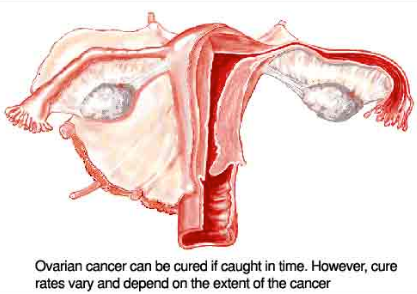Ovarian Tumor Removal in Munich
Search and Compare the Best Clinics and Doctors at the Lowest Prices for Ovarian Tumor Removal in Munich

Find the best clinics for Ovarian Tumor Removal in Munich
With Medijump you can browse 1 facilities offering Ovarian Tumor Removal procedures in Munich. The cheapest price available is $4,752 in Berlin. And for the cheapest price globally, prices start from $714 in Ukraine.
Ovarian Tumor Removal in Germany
Price: $ 4,752
Ovarian Tumor Removal in Berlin
Price: $ 4,752
Ukraine offers the best prices Worldwide
Price: $ 714
University Hospital of Munich (LMU), located in Professor Huber Platz, Munich, Germany offers patients Ovarian Tumor Removal procedures among its total of 223 available procedures, across 26 different specialties. Currently, there's no pricing information for Ovarian Tumor Removal procedures at University Hospital of Munich (LMU), as all prices are available on request only, whilst the national average price is approximately ฿170,999. There is currently a lack of information available on the specialists practicing at the Hospital, and they are not accredited by any recognized accreditations institutes
WHY US?
At Medijump, we're making medical easy. You can search, compare, discuss, and book your medical all in one place. We open the door to the best medical providers worldwide, saving you time and energy along the way, and it's all for FREE, no hidden fees, and no price markups guaranteed. So what are you waiting for?

Free

Best Price

Widest Selection

Risk-Free
What you need to know about Ovarian Tumor Removal in Munich

Ovarian tumors are usually benign (non-cancerous), but if left untreated they may develop into Ovarian Cancer. If you have an ovarian tumor that grows and causes painful symptoms, you may need to undergo ovarian tumor removal, which is a surgical procedure to remove the tumor and sometimes the affected ovary or the surrounding tissue as well.
What does a Ovarian Tumor Removal Procedure Involve?
Ovarian tumor removal can be carried out with laparoscopy or laparotomy depending on the size of the tumor, both are done under general anesthetic. Your surgeon may only remove the tumor and leave the rest of the ovary intact or remove the entire ovary and fallopian tube. If the tumor is malignant (cancerous), your surgeon may remove part or all of the abnormal growth (ovarian tumor debulking).
How Long Should I Stay in Munich for a Ovarian Tumor Removal Procedure?
You will need to stay in the hospital for 3 to 7 days after the surgery, but you should plan to stay in Munich for 14 days. During your stay, you will attend follow-up hospital checkups where your surgeon monitors your condition and your surgeon will also remove the stitches.
What's the Recovery Time for Ovarian Tumor Removal Procedures in Munich?
You may be able to go back to work within 4 weeks, but it is advisable to wait around 6 weeks to get back to your normal activities. During your recovery period, avoid intense exercises, heavy lifting, and sexual intercourse.
What sort of Aftercare is Required for Ovarian Tumor Removal Procedures in Munich?
After the surgery, your surgeon will give you instructions regarding your diet, exercise, and wound care. You may need to meet your local doctor regularly so they can make sure your tumor and/or cancer has not come back. It is also advisable to see a therapist or counselor to talk to about emotional changes that ovarian tumor removal can cause.
What's the Success Rate of Ovarian Tumor Removal Procedures in Munich?
Ovarian tumor removal has a high success rate of about 90%. However, just like any surgery, there are always side effects and risks that come with this type of surgery, including infection, bleeding and damage to nearby organs (such as the ureters and bladder). If both of your ovaries are removed, the side effect is menopause, infertility, dry vagina, hot flashes, night sweats, fatigue, and mood shifts.
Are there Alternatives to Ovarian Tumor Removal Procedures in Munich?
In some cases, if your tumor is benign, you may need no treatment. Instead, your doctor may use “watchful waiting” to ensure the tumor does not cause any problems. If your tumor is malignant, your alternative is systemic therapies, such as hormone therapy, chemotherapy, and targeted therapy.
What Should You Expect Before and After the Procedure
Ovarian tumors can cause painful symptoms and cancerous. After ovarian tumor removal, you should not feel any of these symptoms anymore and you no longer will have a tumor in your ovary. Also, the chance of cancer spreading to other parts of your body is reduced and your fertility is usually preserved after treatment.
Whilst the information presented here has been accurately sourced and verified by a medical professional for its accuracy, it is still advised to consult with your doctor before pursuing a medical treatment at one of the listed medical providers
No Time?
Tell us what you're looking for and we'll reachout to the top clinics all at once
Enquire Now

Popular Procedures in Munich
Prices Start From $260

Prices Start From $714

Prices Start From $714

Recommended Medical Centers in Munich for Ovarian Tumor Removal

- Interpreter services
- Translation service
- Religious facilities
- Medical records transfer
- Medical travel insurance
- Health insurance coordination
- TV in the room
- Safe in the room
- Phone in the room
- Private rooms for patients available

- Interpreter services
- Translation service
- Religious facilities
- Medical records transfer
- Medical travel insurance
- Health insurance coordination
- TV in the room
- Safe in the room
- Phone in the room
- Private rooms for patients available

- Interpreter services
- Translation service
- Religious facilities
- Medical records transfer
- Medical travel insurance
- Health insurance coordination
- TV in the room
- Safe in the room
- Phone in the room
- Private rooms for patients available

- Interpreter services
- Translation service
- Religious facilities
- Medical records transfer
- Medical travel insurance
- Health insurance coordination
- TV in the room
- Safe in the room
- Phone in the room
- Private rooms for patients available
Ovarian Tumor Removal in and around Munich
About Munich
Munich is the largest city in Southern Germany and it is one of a few places on earth where traditional and modern sit side by side, with its royal palaces and high-tech cars. Known as the ‘city of art and beer,’ this city is famous for its annual beer festival known as Oktoberfest. What most people do not realize is that Munich is also one of the world’s most famous medical tourism destination. Thanks to the famous German education system that creates skilled specialists, as well as state-of-the-art medical centers that invest in the latest medical technology, medical tourism in this city is a booming business that continues to grow at a fast rate. International patients usually travel to the city for quality rather than the price.
Popular Parts of Munich
Munich boasts a beautiful historic center, amazing German food, large parks and gardens, and beer halls packed with welcoming people. Visitors can explore numerous historical buildings, such as the Church of St. Peter and Frauenkirche. These two buildings have been around for centuries and are located in Munich’s Old Town. One of the most popular attractions in the city is Alte Pinakothek, which is an important art museum that houses over 800 works from the 14th – 18th centuries from German masters. Those who want to have a picnic, hike, simply relax or even try surfing should visit the English Garden. Other popular places include Dachau Concentration Camp, Nymphenburg Palace, BMW Museum, and Deutsches Museum.
Transport in Munich
The international airport of Munich is Munich Airport, which is the second-busiest airport in Germany in terms of passenger traffic. It serves international flights from many cities around the world, including Dubai, Bangkok, and Atlanta. Munich has a comprehensive network of public transportation that will take visitors virtually anywhere around the city. The most common transit system is the U-Bahn, which is a fast and easy underground subway system. Buses, trams, and commuter trains are also available and each has a vast network. Taxis are easy to hail, reliable, and safe. However, they are a bit pricey and Uber operates in Munich.
Visas in Munich
As a member of the Schengen Area, Germany allows citizens of several countries, including Australia, New Zealand, the US, and Poland to enter and stay in the country without a visa for up to 90 days. Citizens of other countries not listed in the visa-free entry need to obtain a visa to visit the country. Always check the requirements for Germany Visa Application before applying.
Weather in Munich
From June to August is the summer, which is a popular time to enjoy outdoor activities as the temperatures hover around 24°C. On very hot days, the temperatures can reach 30°C. Autumn (September – October) and spring (March-May) has pleasant weather with mild temperatures. Winter can be very cold, with temperatures dropping as low as -10°C.
Additional Info
- Local Currency: Euro (EUR) is the official currency. 1 EUR is approx. 1.12 USD.
- Money & Payments: ATMs are easy to find. Credit cards are not widely accepted and tipping is common practice.
- Local Language: The official language is German. Many people, particularly in tourism areas, understand English to some extent.
- Local Culture and Religion: Christianity is the largest religion in the city, followed by Islam, Buddhism, Hinduism, and Judaism.
- Public Holidays: Munich celebrates numerous holidays, including New Year’s Day and Christmas Day. It also hosts several festivals throughout the year, such as Oktoberfest in October.
Popular Searches
- Plastic Surgery in Thailand
- Dental Implants in Thailand
- Hair Transplant in Thailand
- Breast Augmentation Thailand
- Gastric Sleeve in Thailand
- Gender Reassignment Surgery in Thailand
- Laser Hair Removal in Bangkok
- Botox in Bangkok
- Dermatology in Bangkok
- Breast Augmentation in Bangkok
- Coolsculpting in Bangkok
- Veneers in Turkey
- Hair Transplant in Turkey
- Rhinoplasty in Turkey
- Stem Cell Therapy in Mexico
- Rhinoplasty in Mexico
- Liposuction in Mexico
- Coolsculpting in Tijuana
- Rhinoplasty in Korea
- Scar Removal in Korea
- Gastric Sleeve in Turkey
- Bone Marrow Transplant in India
- Invisalign in Malaysia
- Plastic Surgery in the Dominican Republic
- Tummy Tuck in the Dominican Republic
- Plastic and Cosmetic Surgery in Poland
- Rhinoplasty in Poland
- Hair Implant in Poland
- Dental Implants in Poland
- IVF in Turkey
